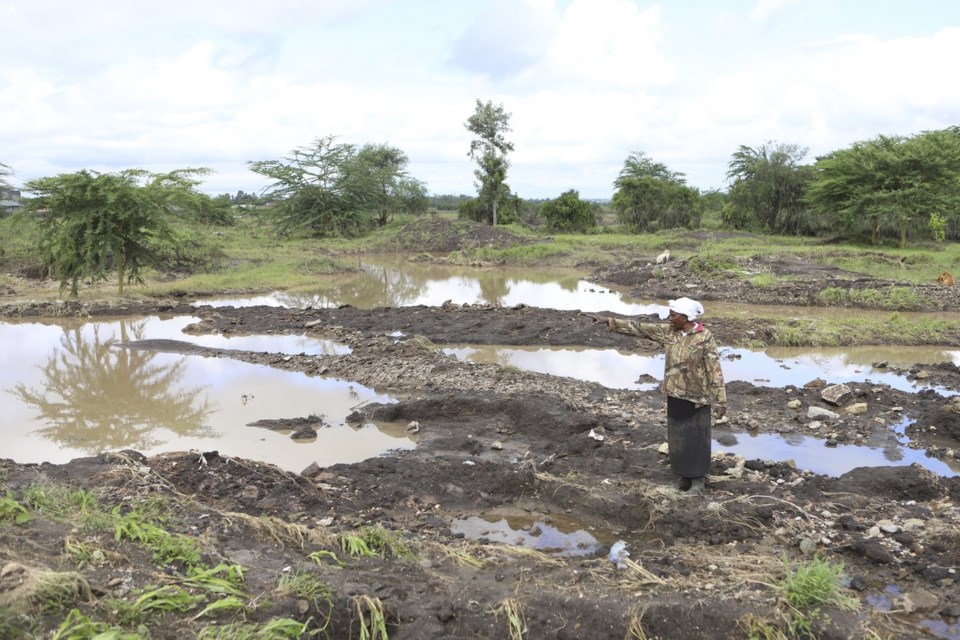MACHAKOS, Kenya (AP) — With dismay, Martha Waema and her husband surveyed their farm that was submerged by weeks of across Kenya. Water levels would rise to shoulder height after only a night of heavy downpour.
The couple had expected a return of 200,000 shillings ($1,500) from their three acres after investing 80,000 shillings ($613) in maize, peas, cabbages, tomatoes and kale. But their hopes have been uprooted and destroyed.
“I have been farming for 38 years, but I have never encountered losses of this magnitude,” said the 62-year-old mother of 10.
Their financial security and optimism have been shaken by what government has called “a clear manifestation of the erratic weather patterns caused by climate change.”
The rains that started in mid-March have posed immediate dangers and left others to come. They have , and led the government to order residents to evacuate flood-prone areas — and of those who don't.
Now a food security crisis lies ahead, along with even higher prices in a country whose president had sought to make agriculture an even greater engine of the economy.
Kenya's government says the flooding has destroyed crops on more than 168,000 acres (67,987 hectares) of land, or less than 1% of Kenya’s agricultural land.
As farmers count their losses — a total yet unknown — the deluge has exposed what opposition politicians call Kenya’s ill preparedness for climate change and related disasters and the need for sustainable land management and better weather forecasting.
Waema now digs trenches in an effort to protect what's left of the farm on a plain in the farthest outskirts of the capital, Nairobi, in Machakos County.
Not everyone is grieving, including farmers who prepared for climate shocks.
About 200 kilometers (125 miles) west of Waema’s farm, 65-year-old farmer James Tobiko Tipis and his 16-acre farm have escaped the flooding in Olokirikirai. He said he had been proactive in the area that's prone to landslides by terracing crops.
“We used to lose topsoil and whatever we were planting," he said.
Experts said more Kenyan farmers must protect their farms against soil erosion that likely will be worsened by further climate shocks.
Jane Kirui, an agricultural officer in Narok County, emphasized the importance of terracing and other measures such as cover crops that will allow water to be absorbed.
In Kenya’s rural areas, experts say efforts to conserve water resources remain inadequate despite the current plentiful rainfall.
At Jomo Kenyatta University of Agriculture and Technology, professor John Gathenya recommended practices such as diversifying crops and emphasizing the soil's natural water retention capacity.
“The soil remains the biggest reservoir for water," he said, asserting that using it wisely requires much less of an investment than large infrastructure projects such as dams. But soil needs to be protected with practices that include limiting the deforestation that has exposed parts of Kenyan land to severe runoff.
“We are opening land in new fragile environments where we need to be even more careful the way we farm," Gathenya said. “In our pursuit for more and more food, we are pressing into the more fragile areas but not with the same intensity of soil conservation that we had 50 years back.”
___
The Associated Press receives financial support for global health and development coverage in Africa from the Bill & Melinda Gates Foundation Trust. The AP is solely responsible for all content. Find AP’s for working with philanthropies, a list of supporters and funded coverage areas at .
Desmond Tiro, The Associated Press



